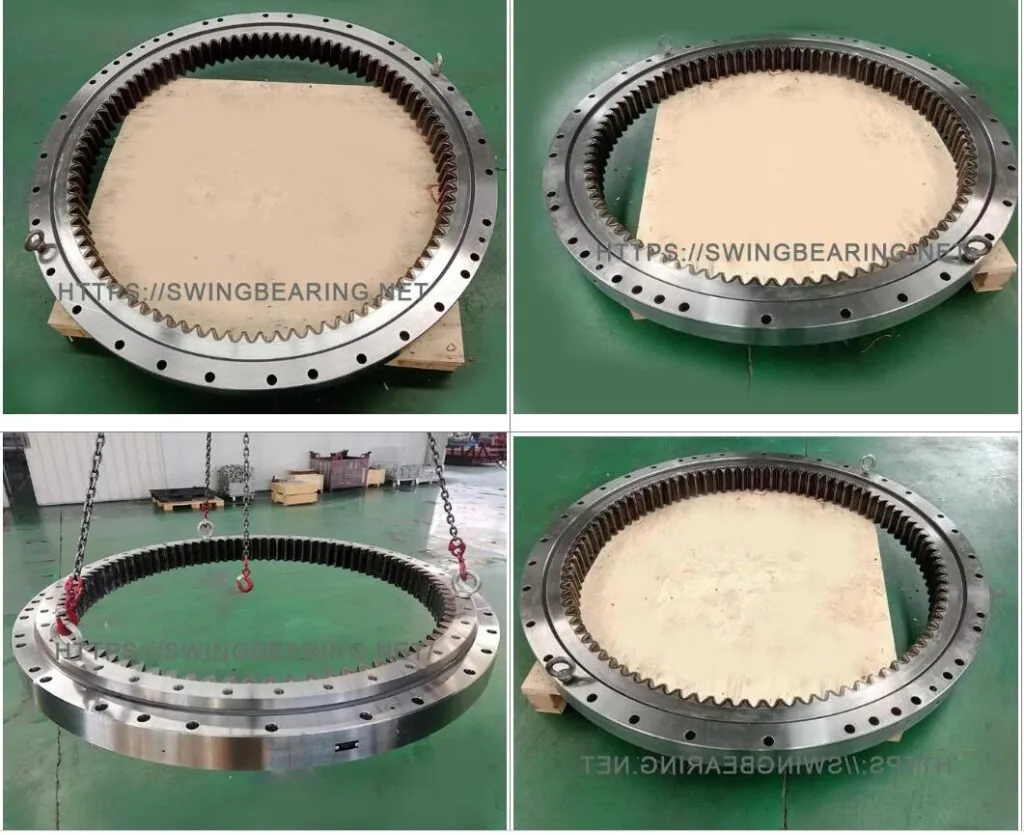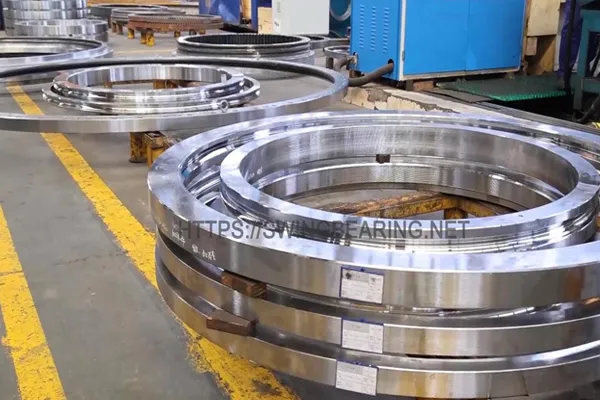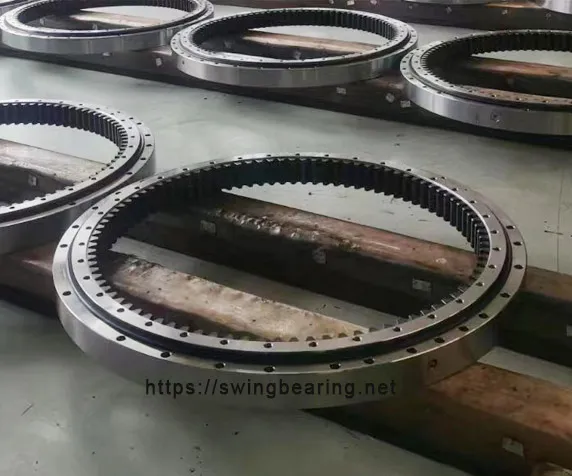
Proper lubrication is crucial for maintaining the integrity and performance of excavator slewing ring bearings. When bearings are optimally lubricated, they not only operate safely but also reduce the risk of premature failure. To ensure your excavator bearings are properly maintained, it’s essential to avoid common lubrication mistakes. Here, we discuss key errors to steer clear of to keep your bearings in top condition.
One of the most common mistakes is adhering to a rigid yearly relubrication schedule without considering the specific needs of your application. Every excavator bearing has a recommended relubrication period based on its operational environment and usage. These guidelines include the amount of lubrication needed and the appropriate time intervals for reapplication.
For instance, a general recommendation might be to lubricate a bearing every 100 hours of operation. However, if the application involves continuous rotation, lubrication might be necessary after just 20 hours of use. Additionally, bearings mounted on idle equipment or stored for extended periods should be lubricated every six months to prevent degradation. Always consult your slew ring manufacturer to get the most accurate recommendation for your specific application to avoid unnecessary wear and tear.

Choosing the right lubricant is critical. Not all lubricants are created equal, and using an incompatible grease can render the reapplication process ineffective. Mixing two different types of grease can lead to chemical incompatibility, reducing the lubricant’s effectiveness and potentially harming the bearing.
Manufacturers often provide a chart or guidelines specifying which lubricants are compatible with their bearings. Adhering to these recommendations ensures that the lubricants will work as intended, providing optimal protection and performance. If you’re unsure which lubricant to use, contact your bearing manufacturer for advice.
Another common misconception is that more grease is always better. Over-lubricating bearings to the point where grease purges from the seal can actually be detrimental. Excess grease can cause the operating temperature and pressure within the bearing cavity to increase, which can hinder performance and potentially lead to bearing failure.
The correct amount of lubrication is essential for maintaining proper function without causing excess friction or heat. Always follow the manufacturer’s guidelines on the appropriate amount of grease for your bearings. Over-lubrication can be just as harmful as under-lubrication, so finding the right balance is key.

While it might seem logical to add more grease if a bearing starts making noise, this is not always the best course of action. Noisy bearings can be a sign of internal damage rather than a lack of lubrication. In such cases, additional grease might provide temporary relief but won’t address the underlying issue.
If a bearing is making noise, it’s important to diagnose the root cause. Internal damage might have occurred, and simply adding more lubricant will not fix the problem. If noise persists, remove the bearing and consult the manufacturer to determine why the bearing was incompatible with the application and what corrective actions are needed.
Avoiding these common lubrication mistakes can significantly extend the life of your excavator bearings and ensure they perform as intended. Proper lubrication practices not only enhance the reliability and safety of your equipment but also help prevent costly downtime and repairs. If you have specific lubrication questions or need tailored advice for your application, don’t hesitate to reach out to your slew ring manufacturer.

For further assistance with lubrication or any other bearing-related inquiries, please contact us. Our team of experts is here to help you maintain your equipment and ensure optimal performance.
Why is it important to follow the manufacturer’s lubrication recommendations?
Following the manufacturer’s lubrication recommendations is crucial because it ensures that the bearings receive the appropriate type and amount of lubricant at the correct intervals. This helps maintain optimal performance and prevents premature failure.
What can happen if incompatible greases are mixed?
Mixing incompatible greases can lead to chemical incompatibility, reducing the lubricant’s effectiveness. This can cause inadequate lubrication, leading to increased wear, higher operating temperatures, and potential bearing failure.
Why is over-lubrication harmful to a Slew Ring Bearing?
Over-lubrication can increase the operating temperature and pressure within the bearing cavity, which can hinder performance and cause premature bearing failure. Excess grease can also cause seal damage and leakage.
What should be done if a bearing starts making noise?
A4 : If a bearing starts making noise, it’s important to diagnose the root cause rather than simply adding more grease. Noise can indicate internal damage, and adding more lubricant may only provide temporary relief. Remove the bearing and consult the manufacturer for a proper diagnosis and solution.